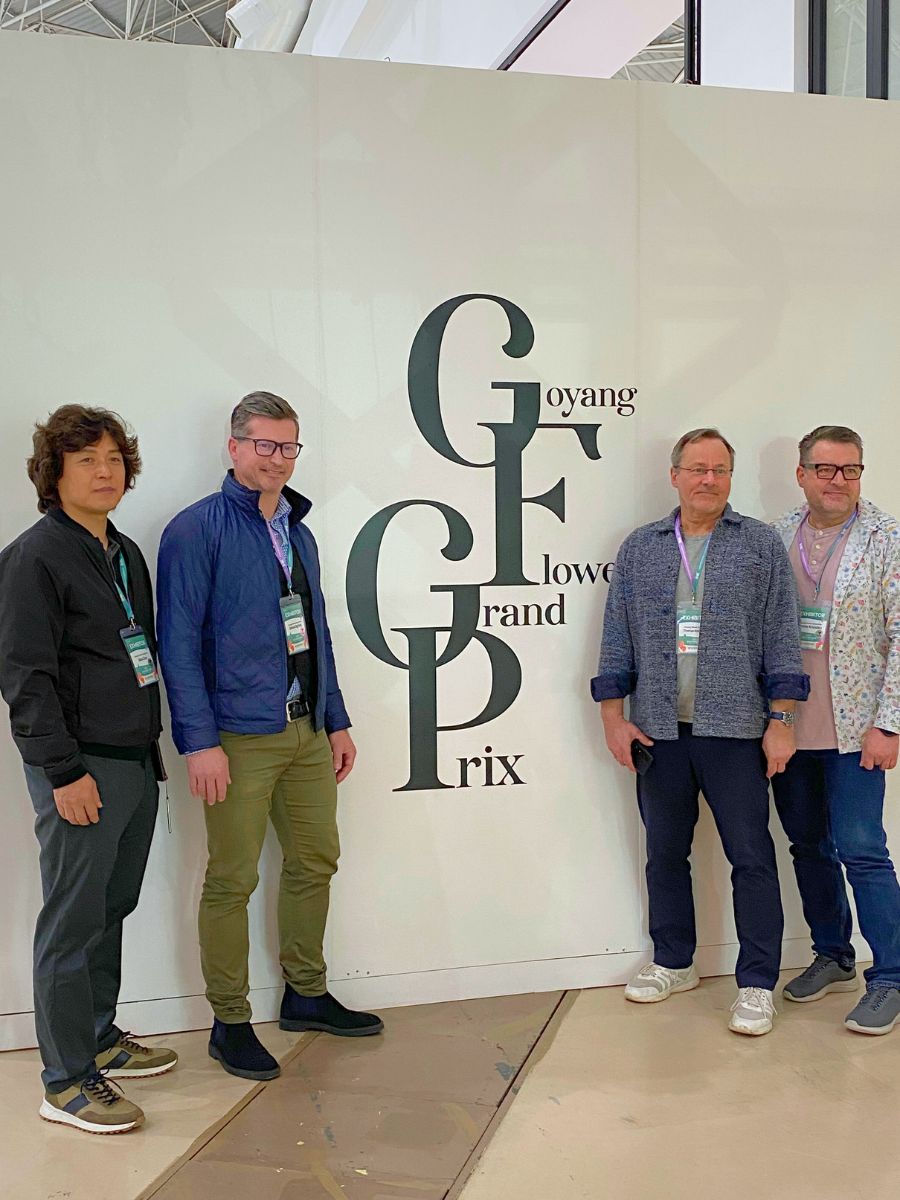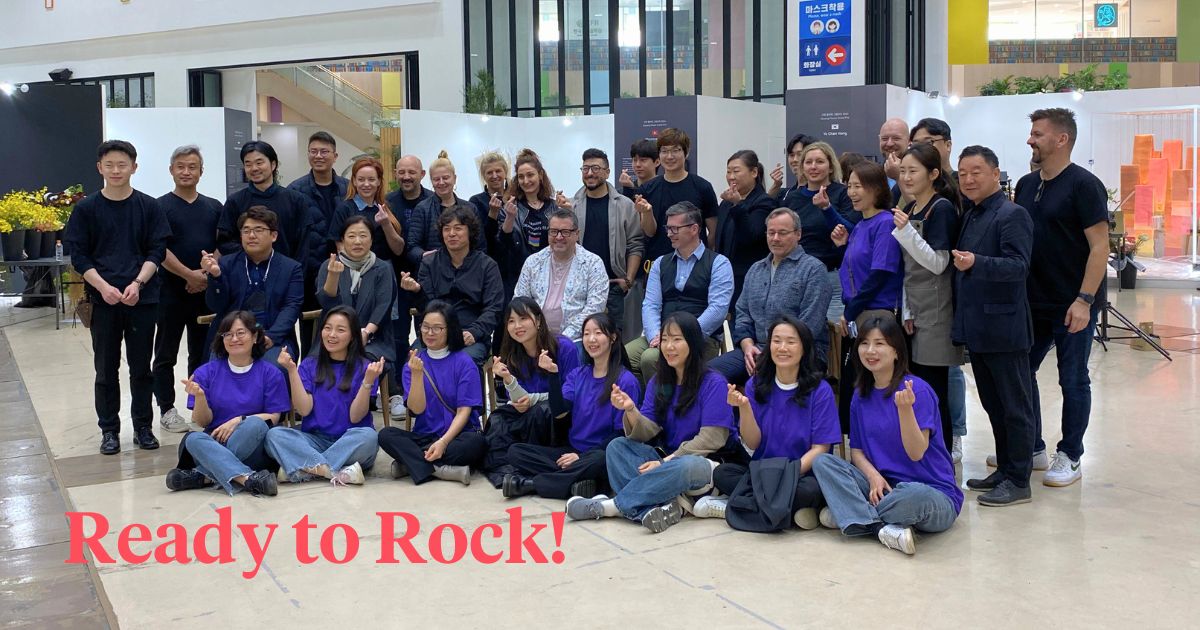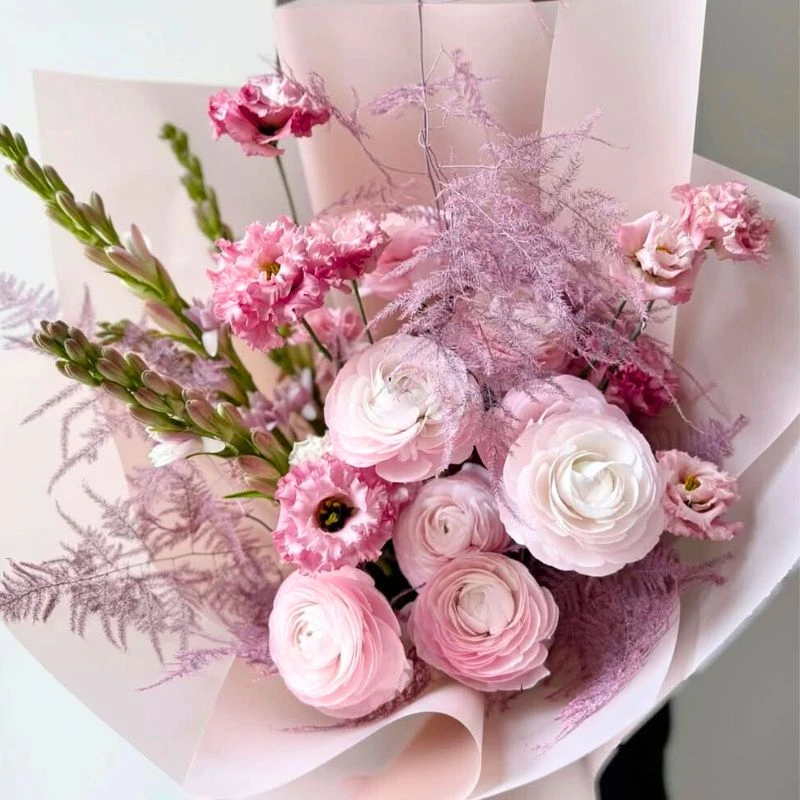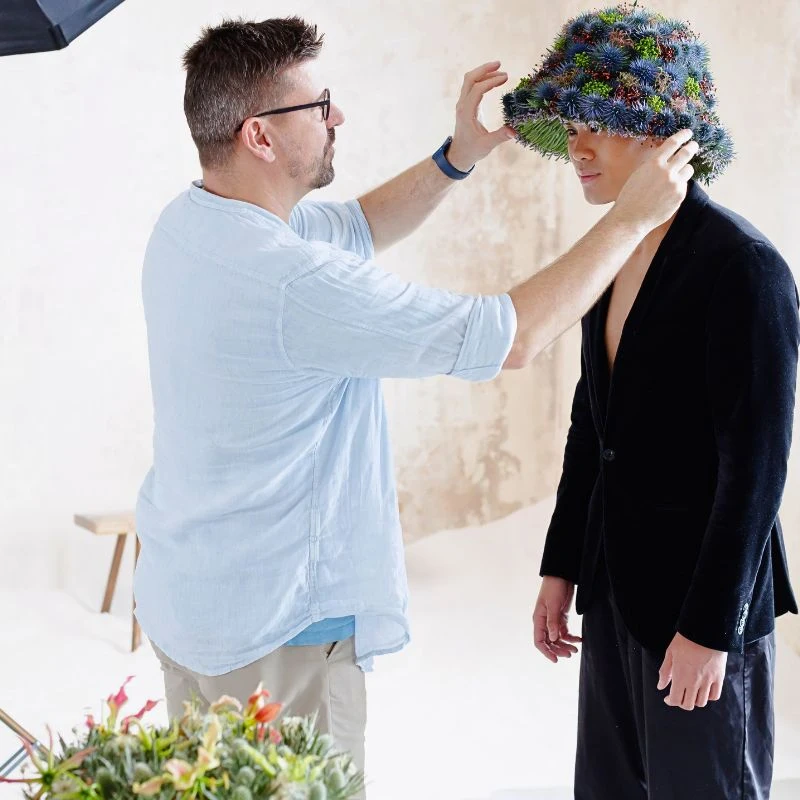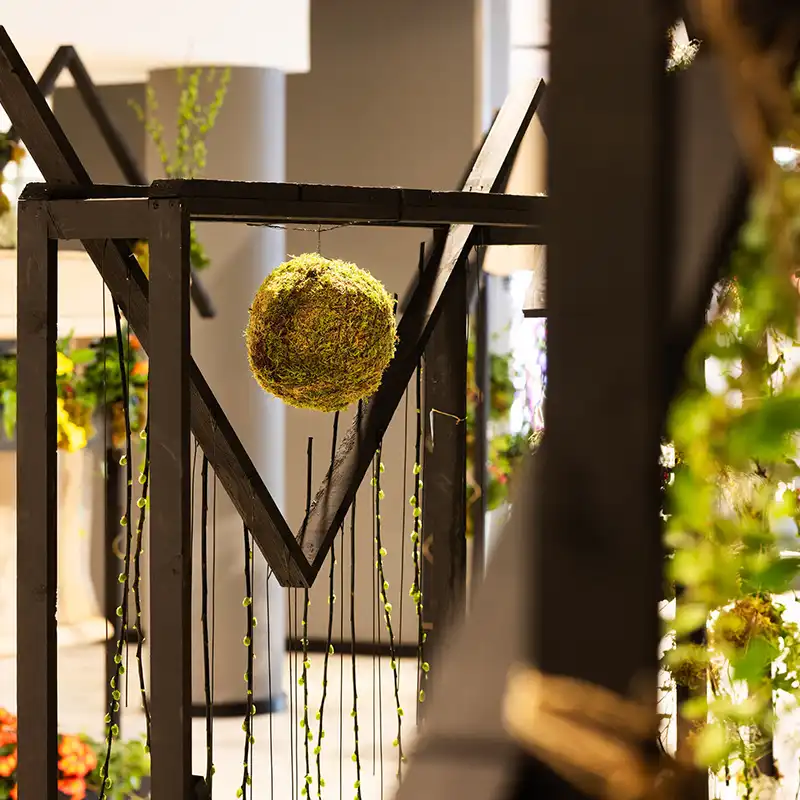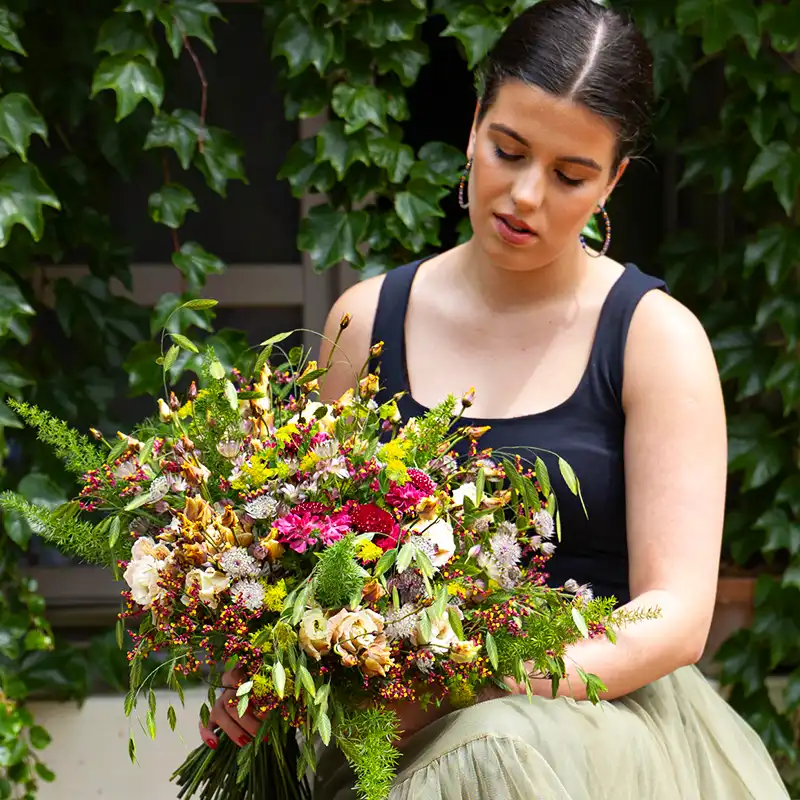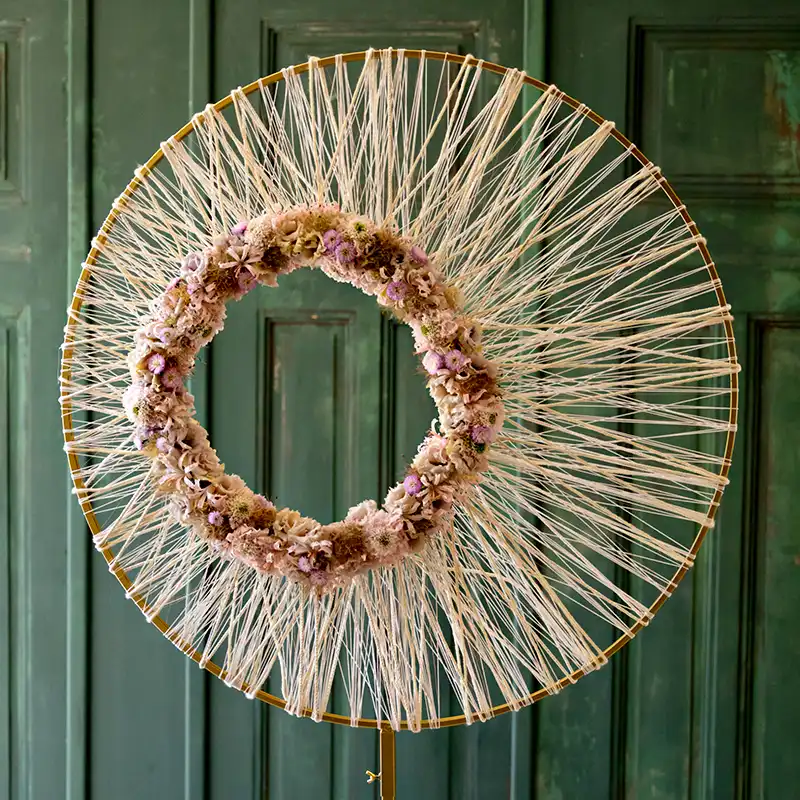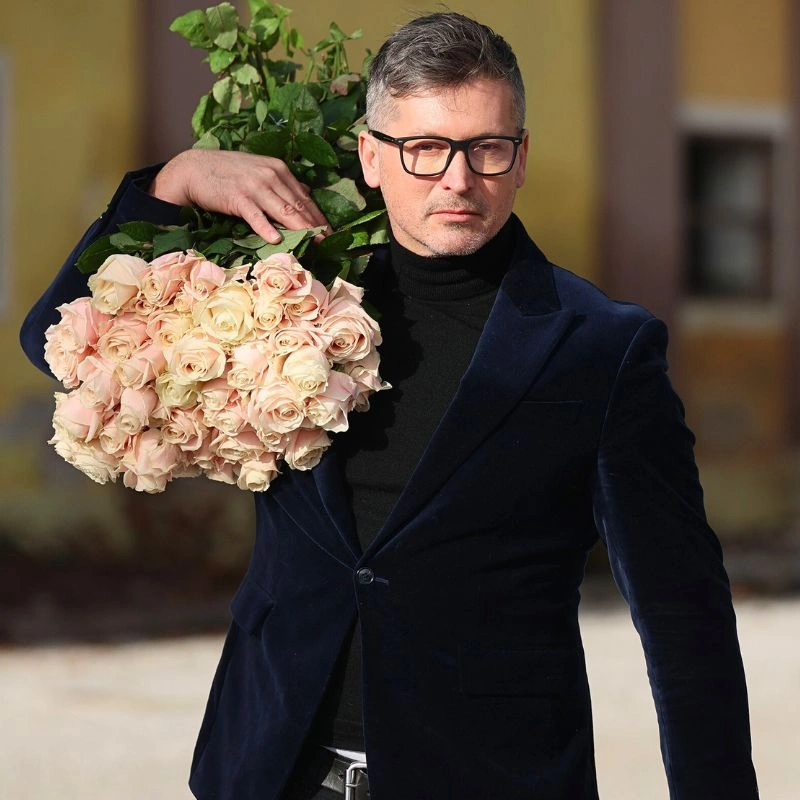Wauw! That is the first reaction to today's designs. Unbelievable to be able to achieve this in so little time! These florists all are winners.
The Goyang Flower Grand Prix, a new international competition to crown a Winner takes place in Goyang during the horticultural garden and flower expo. The long wait leading up to day 1 was over for all competitors. Months of preparation, practicing, brainteasing, and finding that unique approach to the challenging task themes should lead to a climax in this breathtaking city of Goyang.
Thursday, the 25th of April marked the first chance for ten talented designers from all over the world to show their skills. Here's an overview of this theme's interpretations with stunning creations displayed for the visitors to behold up close.
Thursday 25th April
Task 1:
Theme: Showcase Your Infinite Potential
Arman Voskanyan, Armenia
"Here are the thoughts that crossed my mind when I began contemplating the boundless possibilities of the future. In my work, I wanted to utilize unconventional materials and various handcrafting techniques to give shape and realization to unconventional metaphorical ideas. Transparent cylinders merge with living flowers, creating a unified ensemble of new forms and reflections on existence. Woven threads and the imitation of cocoons represent transformations of time and the essence of the emergence of new life. The art object as a whole provokes reflections on deep philosophical themes and the possibility of the existence of other dimensions."
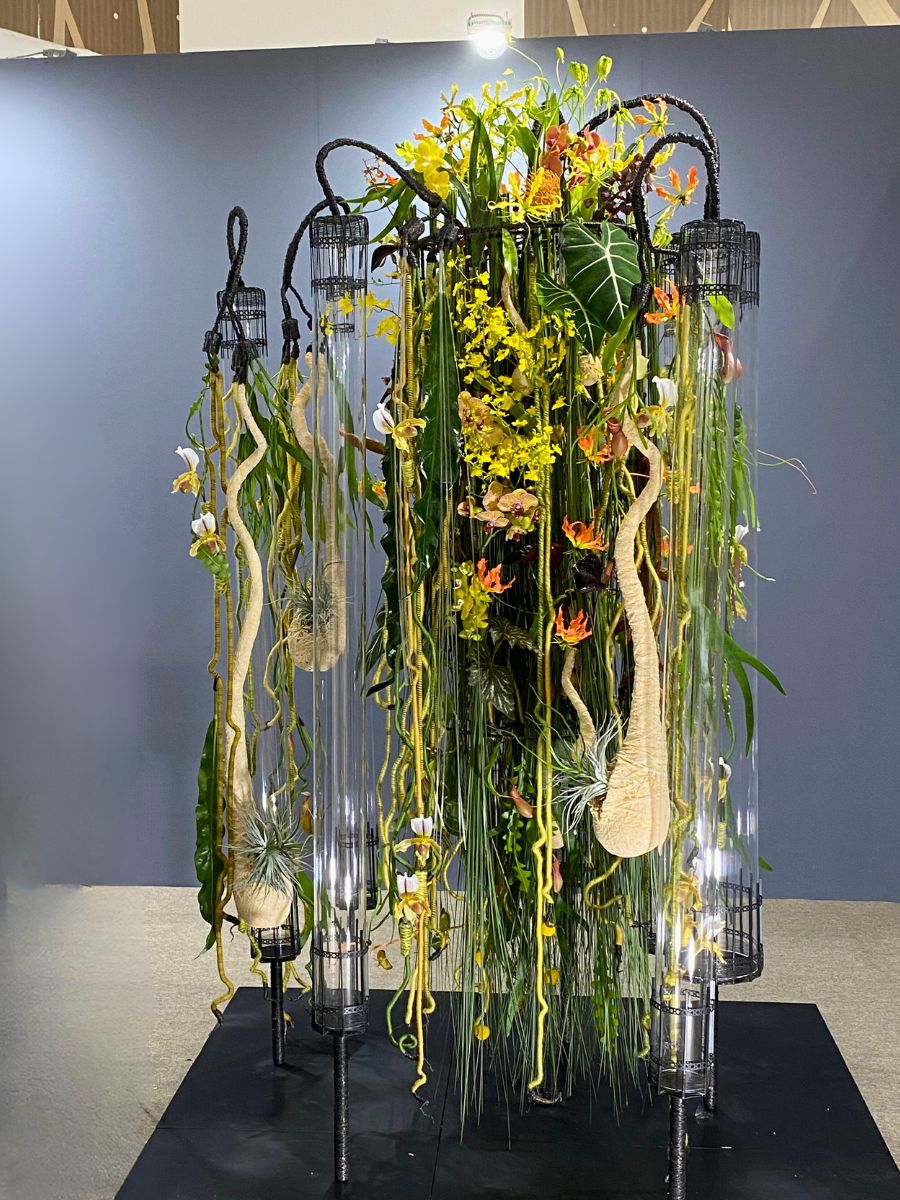
Jenny Thomasson, USA
"I have produced these designs to discover the correlation between flowers and human emotion, physical interaction, and botanical exploration. Through creating with such temporary media, I consider the life cycles of the flora and fauna to experience the optimal beauty of each element. I have made certain to maintain a heavy intention and focus on the passionate side of the creative process and the sensitivity that accompanies that passion."
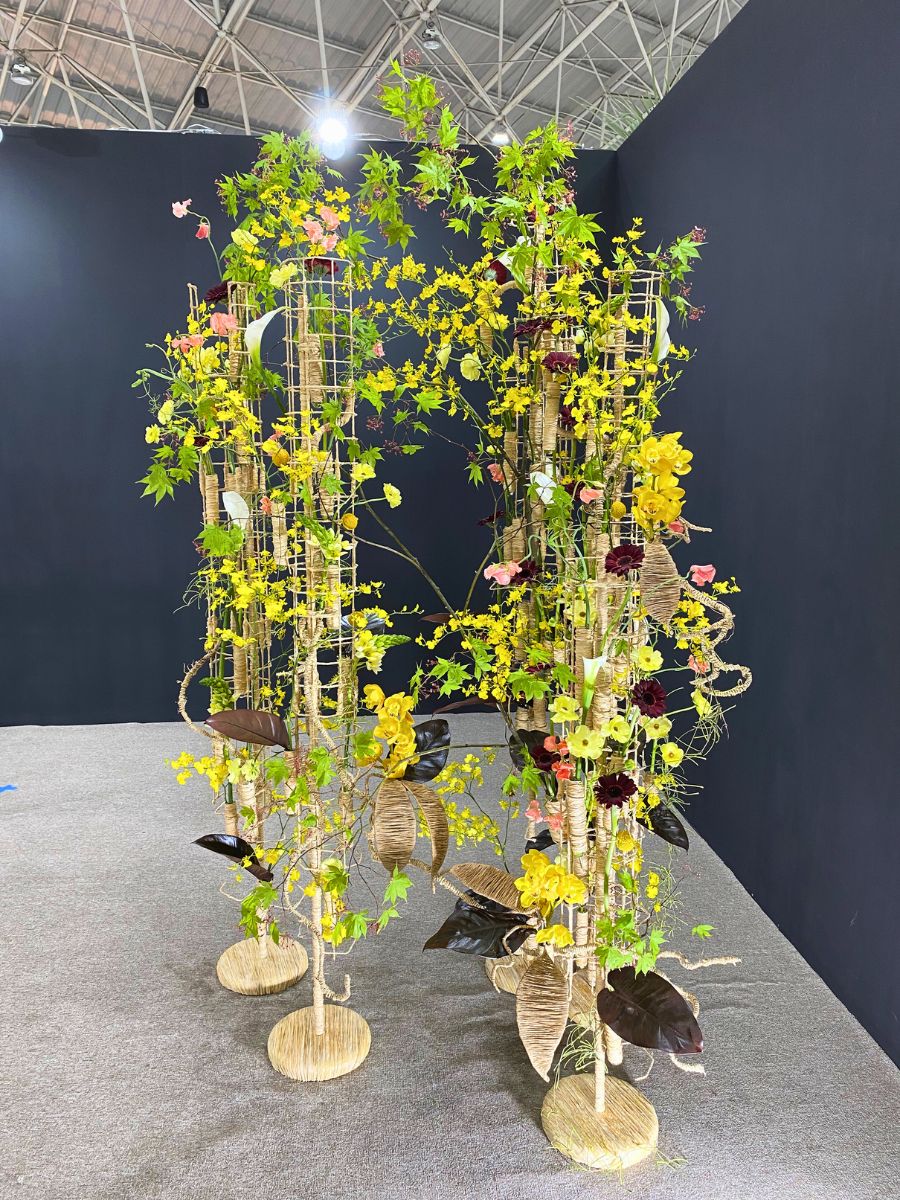
Florence Ling, Hong Kong
"Set sailing!
As COVID restrictions ease, we are finally venturing out to reunite with friends and explore the world once more. The wings of this structure embody the warm embrace of friends from distant lands, beckoning us to connect, while also evoking the wings of a vessel or aircraft ready to carry us on adventures across the globe."
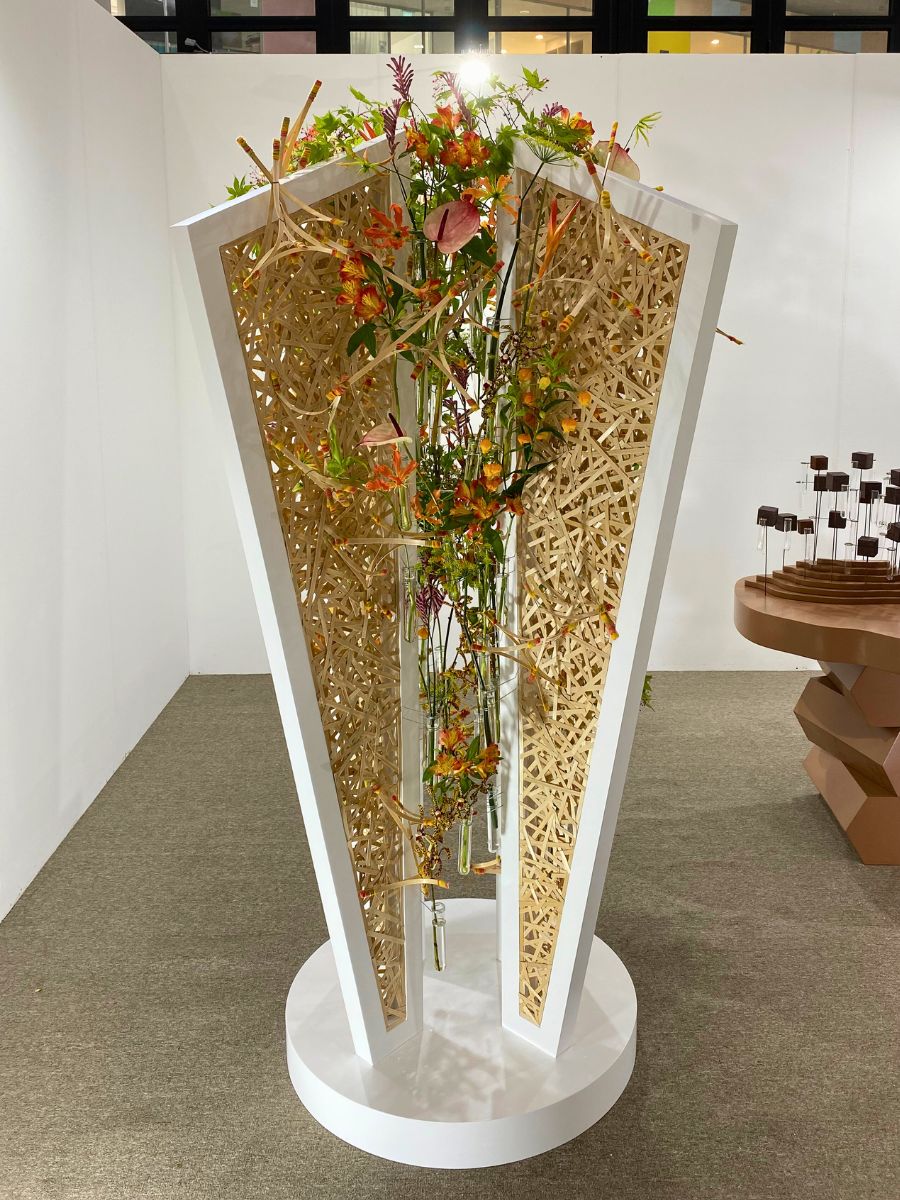
Natalia Hoogenraad, Netherlands
"Horn of Plenty: Bridging Myth and Sustainability.
In Greek mythology, the Horn of Plenty, or Cornucopia, symbolizes unending abundance, a magical vessel overflowing with fruits and grains, signifying prosperity and the Earth's richness. This ancient emblem, reimagined in our installation, connects the mythic past with a sustainable future, emphasizing the harmony between humanity and nature.
Central to this vision is the Korean cabbage, a key feature that not only represents life's cycle and fertility but also our commitment to ecological sustainability.
This installation embodies the theme "Endless Future - Limitless Possibilities," urging us to reflect on how ancient wisdom and modern sustainability practices can intertwine to forge a path forward."
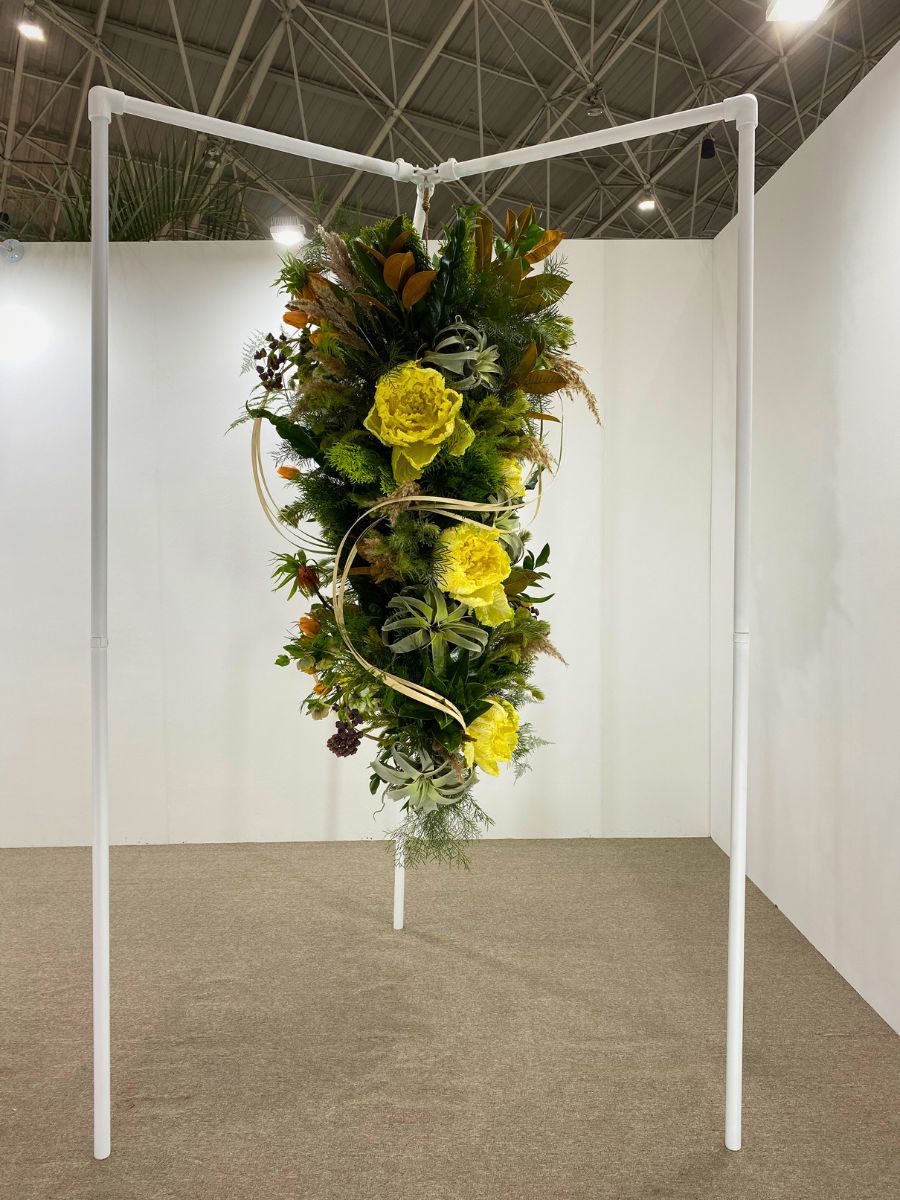
Krisztián Kövér, Hungary
"I love colors, the multi-colored world, the shades, the small differences within the colors and I love the same thing about people. That we are diverse. Heights and depths, dark and light, ups and downs, round and tall... this is how life is…both figuratively and literally. Life is wonderful!"

Aniko Kovacs, Canada
"An Endless future.
ENDLESS things are infinite.
INFINITY is the idea or concept that has no end.
FUTURE is the period of time that will come.
Purple and violet color palettes represent the future, a space for imagination and for endless dreams. This vertical, textural design uses hundreds of yarn-covered wires and a combination of floral botanicals to inspire and explore unlimited possibilities."
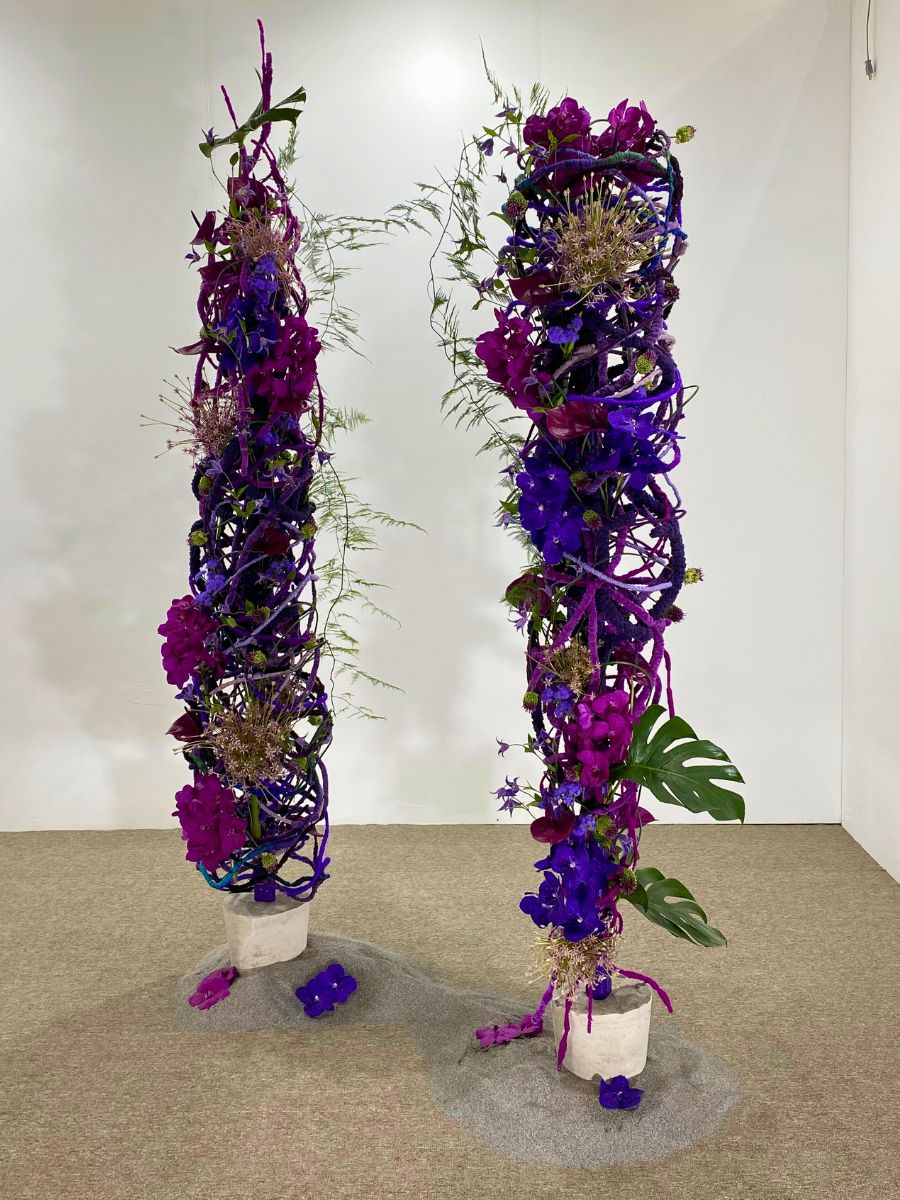
Howard Pang, Macao
"The main idea of this design is 'infinite'. The structure comes with the idea of a chain with an infinite length and a very interesting design idea 'tensegrity', the design shows a small part of a chain and tensegrity gives a floating effect to the design and enhances the design concept. The color of flowers has a very strong contrast to the structure which also provides a relationship between living flowers and still object structure."
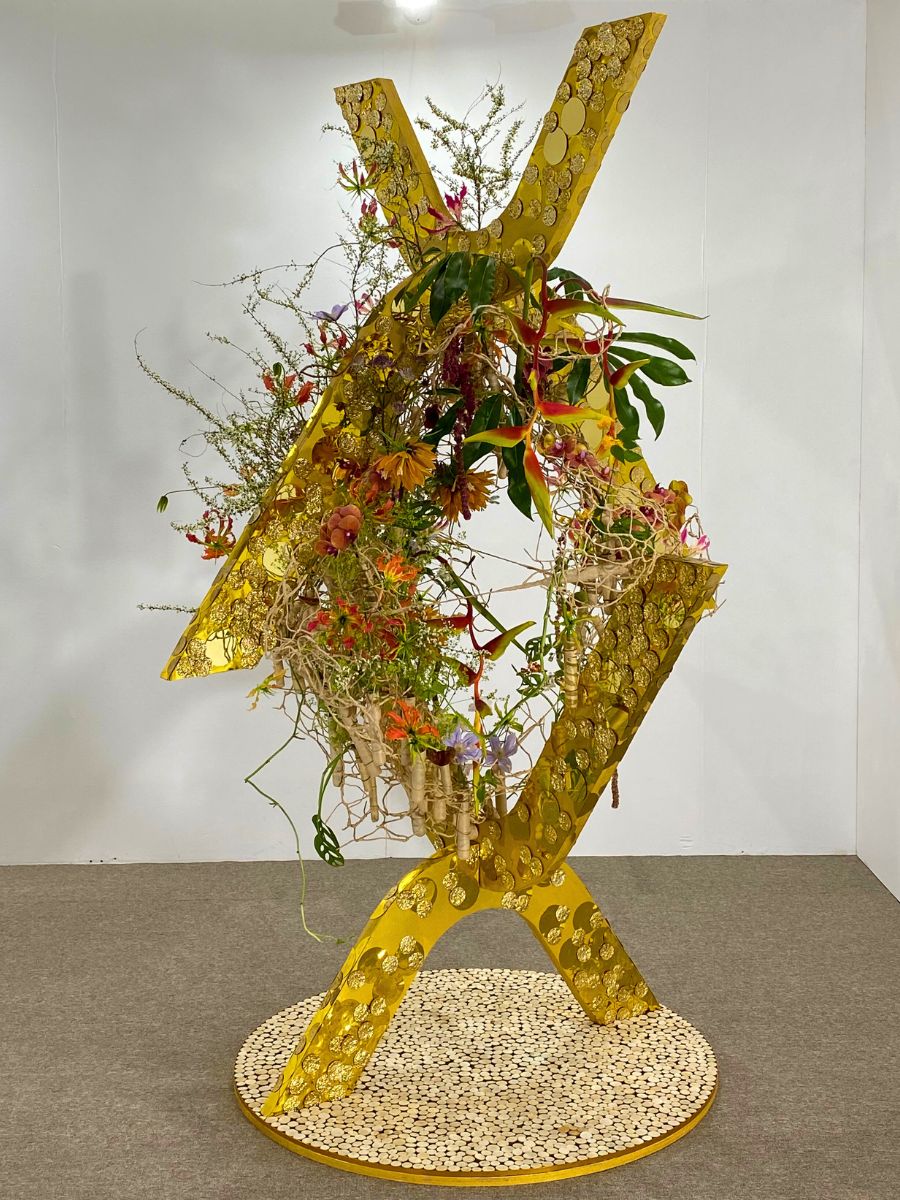
Daisuke Yamakawa, Japan
"Title: 'Fluctuation'
'Water', 'Fire', 'Wind'. Formless and limitless.
'Movement', 'Fluctuation', 'Overlapping'. As they come together and seperate... Consequently, adjacent they overlap and interfere with each other.
Using an eco-friendly and light craft paper band. Expressed with plants and flowers."
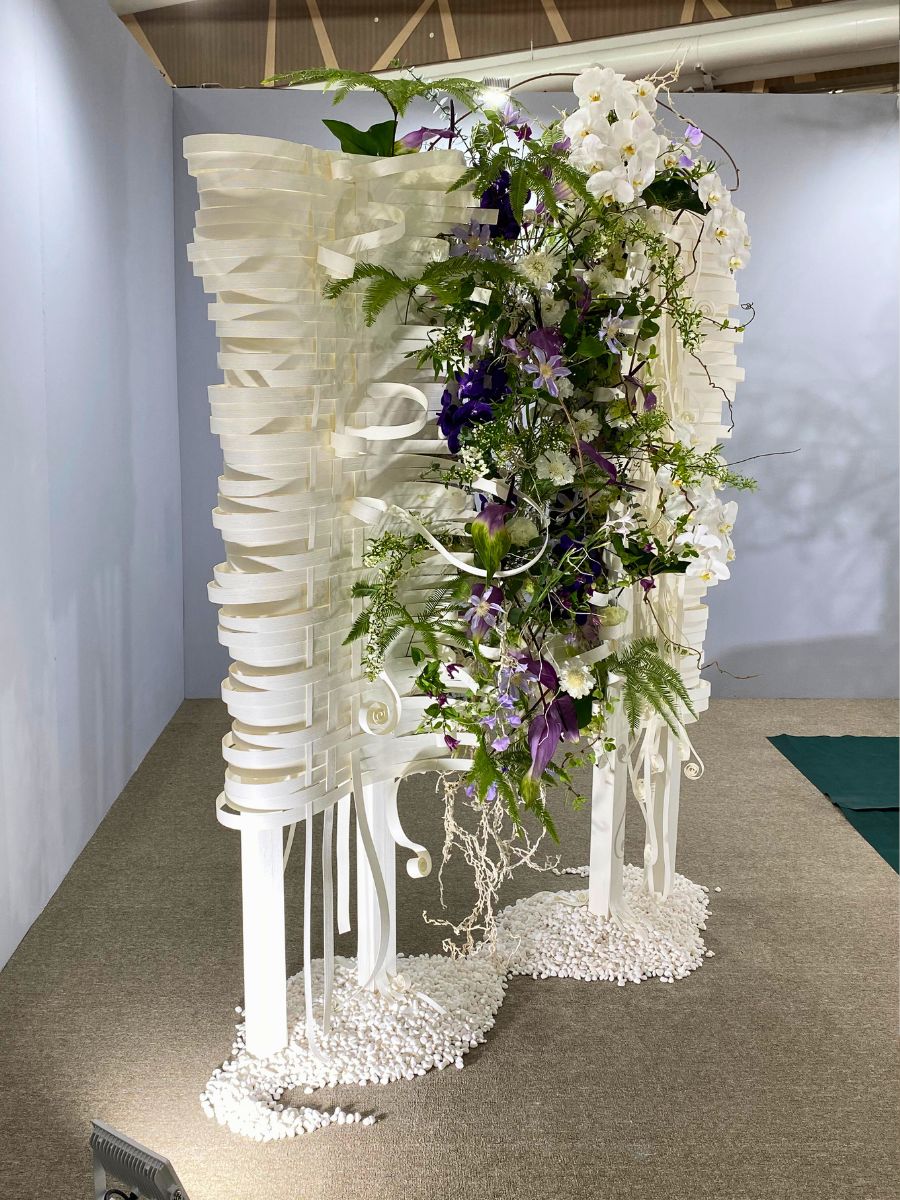
Kim Jong Kook, South Korea
"Title: 'Our Lives'
Our lives, like flowers, can be beautiful and splendid, blooming at any moment. Yet, at other times, we may wither away like leaves scattered by autumn winds, feeling solitary and calm. Such changes and cycles are part of nature, and life itself, a fragment of nature, follows the rhythm of these cycles. Let's empower ourselves to move towards our respective ideals alongside flowers."
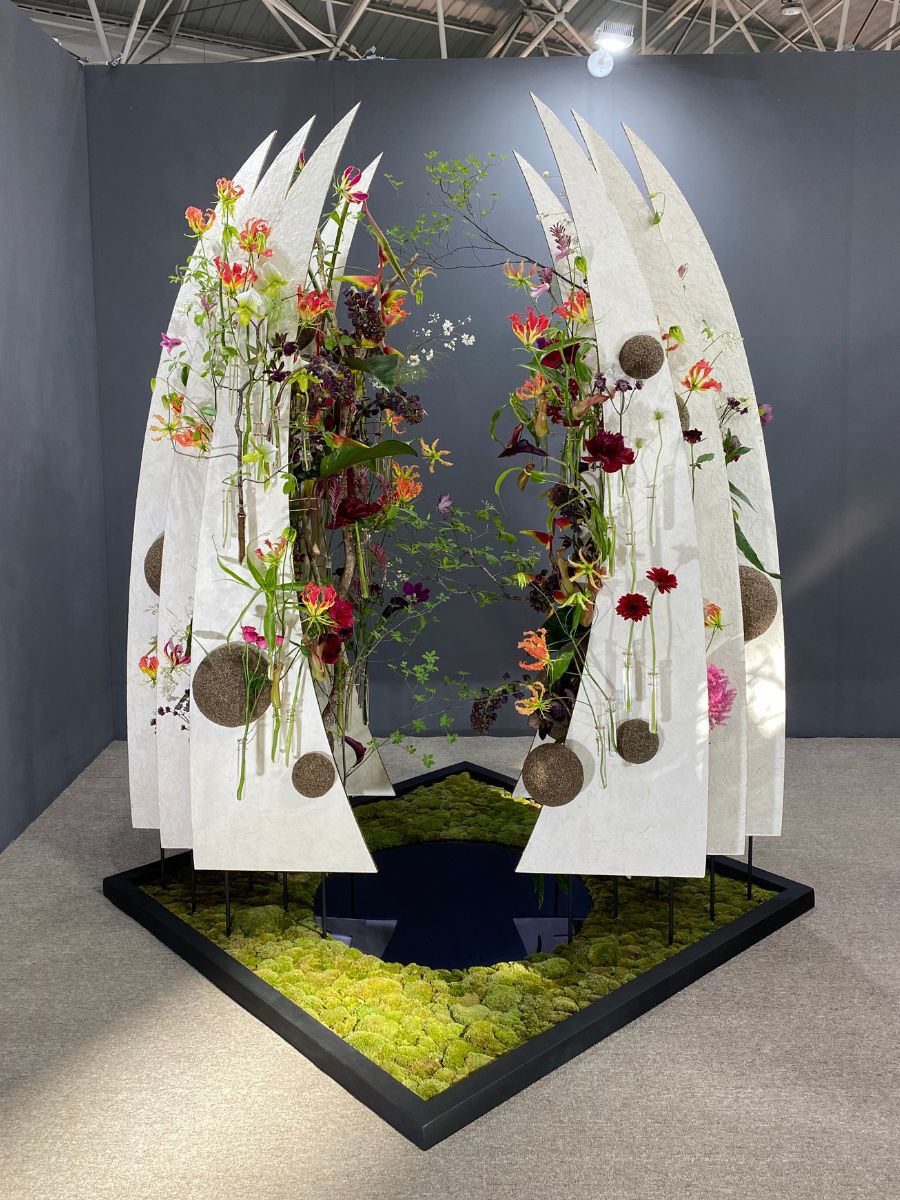
Hong Ye Chan, South Korea
"To mature as a person, various experiences are necessary. Moreover, as experiences accumulate, the maturity of oneself will also evolve. The experiences that have shaped me so far are depicted in various colors, and these are stacked one by one to create a structure. Multiple diverse colors are layered, each representing its own essence yet appearing different from the original colors. This imagery resembles the process of the self-maturing."
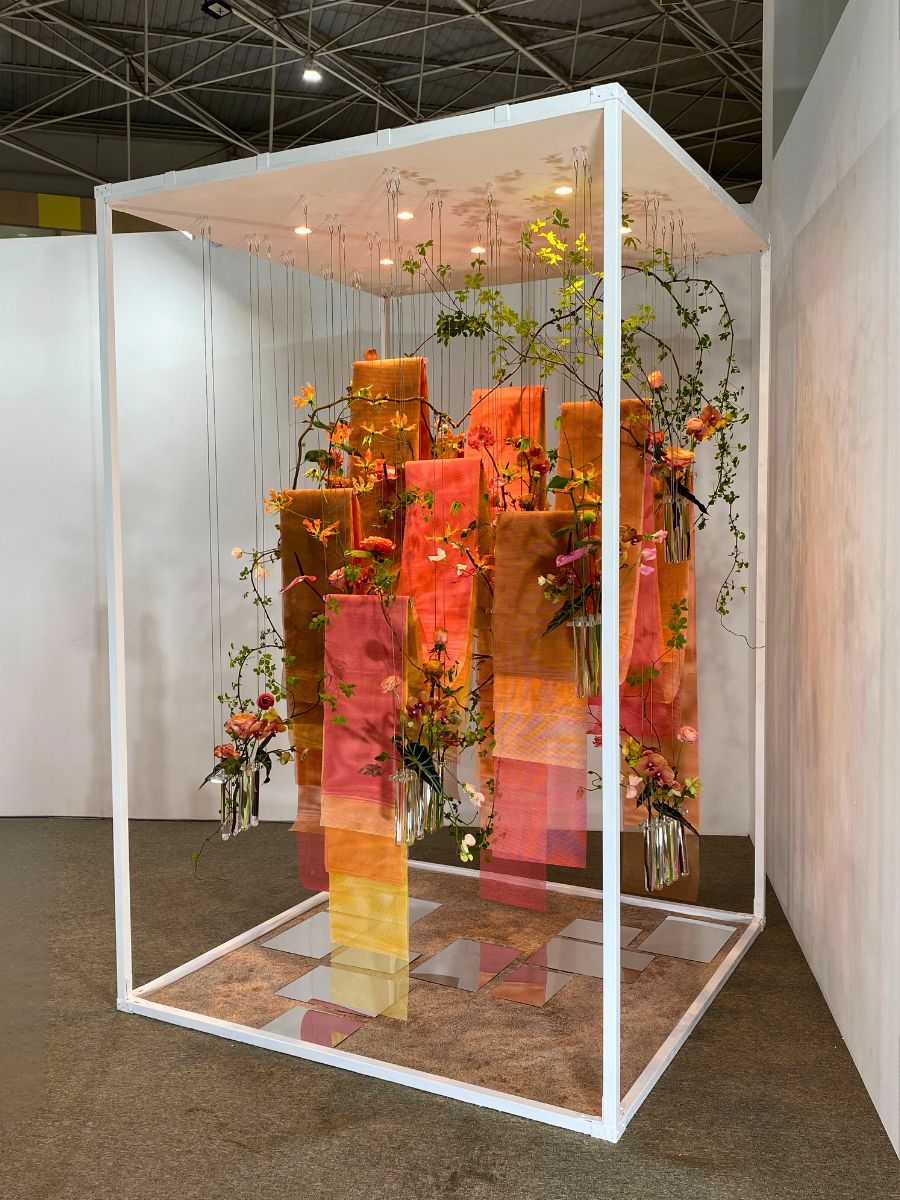
Florint Judging System
For judging the system of Florint is used. They judge according to four criteria: Technique, idea, color, and composition.
The technique is judged by all judges together, and they discuss the cleanness of the arrangement, the condition of the materials, the suitability of the technique used, functionality, according to the task description, the stability of the arrangement, and its physical balance. The possibility to supply the arrangement with water expected longevity, and the technical complexity, elaboration, and craftmanship sufficiently.
After that, they go piece by piece and judge separately on the idea, it means they look at the design's uniqueness, the interpretation of the given task, the theme, the choice of materials and how they correspond with the task, and how the idea corresponded to the time, and finishing.
For color, they judge proportions, the dominance of the used colors, expression of the given theme in colors, choice of composition of colors, contrast, and harmony, and the placement of the colors.
Composition is the fourth criterion. The overall general impression, shape, form, proportions, visual balance, and space. Also, the style of arrangement, the choice, dominance, and use of materials which means the movement, lines, personality, contrasts... And of course the respect for the materials.
